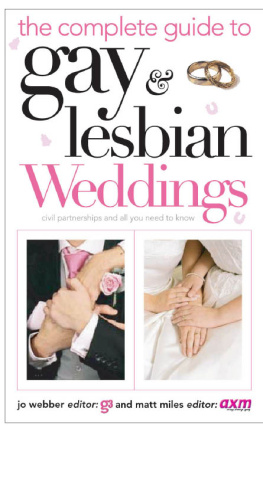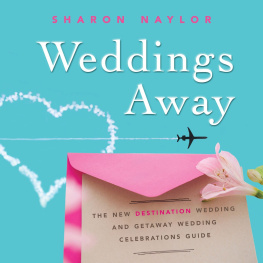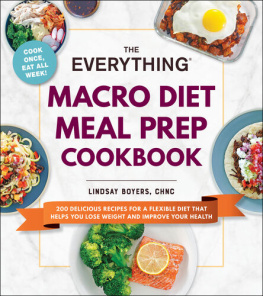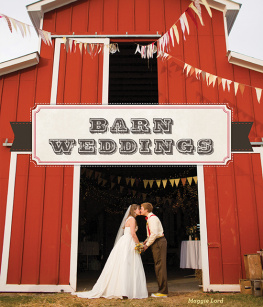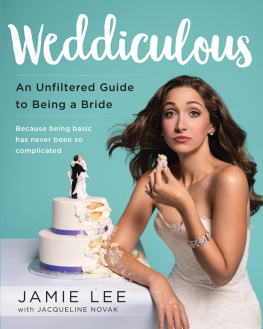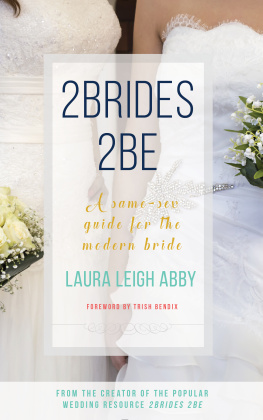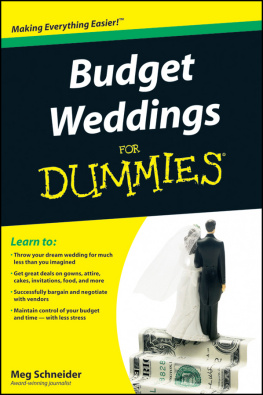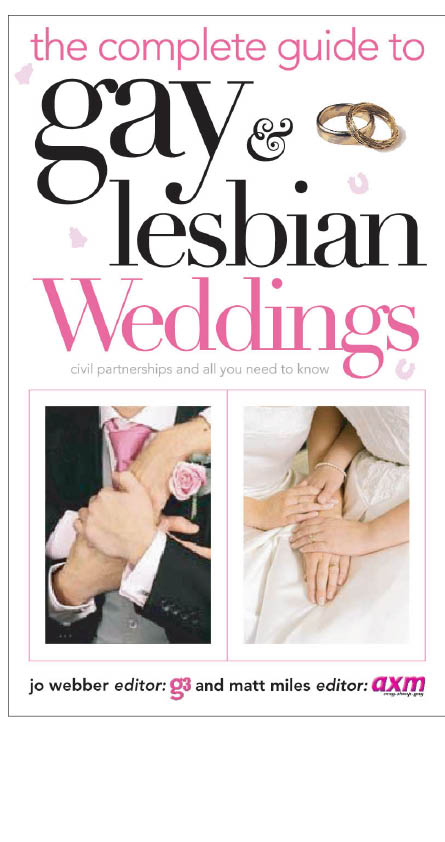Congratulations! Youre joining the first wave of same-sex couples in the United Kingdom to become civil partners. Its uncharted territory, and while there has been plenty of newspaper coverage devoted to the debate over whether you should be allowed the same rights that heterosexual couples enjoy (and a fair bit to David and Eltons wedding, too), this is the first gay and lesbian wedding guidebook to help prospective civil partners in the UK plan their big day.
Planning for your civil partnership or wedding call it what you will can seem about as attractive as scaling a mountain in a snowstorm. But dont panic! With a little help to guide you through the pathways, its straightforward to plan and budget for the registry, ceremony and celebration of your civil partnership from today right through to your honeymoon.
Congratulations!
Its Your Big Day
Though the advent of civil partnerships has seen a host of companies spring up offering gay wedding planning services, the majority of you will still be organising the entire event yourselves (hopefully with the help of family and friends!) in the same way that most conventional weddings are put together. Indeed, even those with cash to burn may find that they can create a more personalised ceremony by doing much of the legwork themselves, and this book will certainly be invaluable in helping you monitor the service you are receiving from any outside agencies.
However much of the work you decide to take on yourselves, we will help you keep a clear oversight of the whole process and make sure you dont slip up on the details. Throughout this book you will find easy-to-use checklists that let you both see the bigger picture and focus on the little things that make a difference. Well also offer hints that might give you some inspiration, as well as sharing advice on dealing with some of the more complicated issues surrounding your wedding, from unsympathetic family members to setting commitment guidelines for your own relationship. Above all, this is a practical guide to help you manage what can seem a daunting task by breaking it down into manageable steps. Though much of the process mirrors that of heterosexual wedding planning, there are some key differences and with them exciting opportunities to rewrite the rule book.
partnership pioneers
In essence, your civil partnership is the same deal as heterosexual marriage; you are committing to a long-term future with your partner, ensuring that your assets and rights are protected by law. However, there are also some significant differences. One of those key differences is that unlike heterosexual couples you will not be able to marry in a church, synagogue or mosque.
Though most Britons rarely set foot in places of worship, they are intrinsically linked with the romantic tradition of a wedding and certainly provide a profound backdrop to the ceremony. Youll have to get used to the fact that you will not have this environment for your civil partnership registration, though if you find a sympathetic place of worship you could hold some sort of ceremony there on the same day. Of course, whether or not you are people of faith, youll probably be pragmatic enough to shrug off this inequality, just as youve maintained a brave face through so many other injustices in your life as a member of a contentious minority. And anyway, the fact that you cant register your partnership in a place of worship gives you a chance to create your own highly individual day that avoids some of the rather tired traditions of conventional weddings. You may have to work a little bit harder, as many registry offices are not the most picturesque places on earth, but that could spur you on to think more creatively about what goes into your partnership ceremony. It should also be said that if you shop around youll find some local authority registry rooms and assembly halls that are quite stunning and can be further enhanced with floral displays or other temporary decor, and there also many striking venues ranging from manor houses to the London Eye that are licensed for civil partnerships.
Civil partnerships are a blank page in the book, a chance to write a new chapter for society, and you are among the pioneers setting out into a brave new future. The overriding theme of this book is that its your day and you can take it anywhere you want, provided the actual registration of your partnership takes place in a licensed venue. Whether you want to go low-key and minimal or high camp and fabulous, its up to you. This book will give you the tools, advice and planning structure to make sure you can build towards a day youll never forget for all the right reasons.
what is a civil partnership?
A civil partnership is an entirely new legal relationship, exclusively designed for same-sex couples. The Government has sought to give civil partners parity of treatment with heterosexual spouses, as far as is possible, in the rights and responsibilities that flow from forming a civil partnership. When same-sex couples have their partnership registered they are granted a number of legal rights. The key rights are survivor pensions, recognition for immigration purposes, equal treatment for tax purposes (including inheritance tax) and protection from domestic violence. Civil partners are also exempt from testifying against each other in court, just like married couples, and they gain next of kin rights, which avoids any problems regarding hospital visiting rights. There are, however, some differences between civil partnership and marriage. For example, a civil partnership is formed when the second civil partner signs the relevant document, whereas a civil marriage is formed when the couple exchange spoken words. Opposite-sex couples can opt for a religious or civil marriage ceremony, whereas the formation of a civil partnership is an exclusively civil procedure.
timeline: the road to civil partnerships in britain
While 83 per cent of responses supported the principle of a civil partnership scheme, the Bill proposing that this become British law had a rough ride through parliament, particularly from Conservative peers, and this resulted in various amendments.
26 November 2003
In the Queens Speech, the monarch announced the Governments proposal for the introduction of the civil registration scheme for same-sex partners. A passionate (and often highly prejudiced) debate was kick-started across the media as liberals and traditionalists argued for and against this historic proposal.
31 March 2004
The Labour Government published the Civil Partnership Bill.
22 April 2004
The Civil Partnership Bill had its second reading in the House of Lords. This was the first opportunity for the legislation to be debated.

